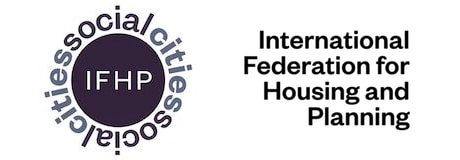The beneficiaries of the programme are the citizens: the people living in our cities today and in generations to come whatever their age, sex and social groupings.
Cities are growing. In 2015, 4 billion people lived in urban areas. That number is expected to rise with 1 billion by 2030. This means that cities are increasingly setting the scene for our homes and social lives.
It is in the city that we are active, eat, go to work, educate ourselves and get inspired by cultural events. The city provides us with the necessities of life: energy, water, transport, security, health, work and education. So, the way we design our cities is inextricably linked with our wellbeing and quality of life.
A sustainable city is built on three pillars: An economic, an environmental and a social pillar. In a well-functioning city, the three pillars are balanced. Together they are key to our quality of life, and if any of the pillars are neglected, the city will eventually collapse. To stay balanced, cities need access to robust and standardised methods to measure, evaluate and develop all three pillars on equal terms. Unfortunately, this is not possible today.
Balancing sustainability
Governments, cities and regions only have shared tools to develop and evaluate two of the pillars in the sustainability concept: The environmental and economic pillars. Economic sustainability is explained and calculated in terms of budgets and excel spreadsheets, and the state of the environment is described with numbers and formulas for the quality of water, air, soil, plants and wildlife
When it comes to social sustainability, the situation is different. We lack a common language and a common understanding of definitions, methods and goals. It is no easy task to decide on goals for our social lives in the cities: is liveability about the number of pedestrians, cyclists, restaurants, shopping facilities, central heating, education, jobs, sanitation, safety, access to housing, rent stability, diversity - or perhaps something different or a combination of all?
Because we cannot fully answer these questions, social sustainability is often neglected at the policy level and remains an obscure, intangible concept.
Social Cities is a programme that accommodates this lack of clarity: it is a tool to gather and translate fragmented data to insights, to connect relevant stakeholders and measure the concrete social impact of political initiatives across several parameters.
Imagine a homework club for marginalised teenagers in your city. If we are to measure the actual effect of the club, it is not enough to look at the number of pupils joining the program. You also should look at how the pupils manage later on in the education system and the labour market, how the crime rate in the area is affected, and how it affects the general well-being of the community.
Social Cities will develop a tool that enables cities and regions to get a complete overview of the shock waves a new social initiative set in motion in the entire social area. It will offer a map of social indicators and how they are mutually interrelated. At the same time, Social Cities will create balance in the sustainable development - that is amongst the economic, environmental and social circumstances in the city. This balance can only be gained by fortifying the social pillar.
We are developing the program with support from Realdania and the Ramboll Foundation and in collaboration with IFHP’s partners: London School of Economics, Gehl Institute, Implement and 10 Danish municipalities serving as test cities.
Social sustainability in three steps
The program is divided into three steps
Step 1: The Social Cities Index
First, we develop a method to measure the social sustainability in cities. We call it the Social Cities Index. The index identifies the parameters and indicators that have the greatest effect on social sustainability in cities.
With the Social Cities Index, it is possible to create a profile – an easy-to-read diagnose – of the social sustainability in a city or neighbourhood. With the profile handy, a city can quickly identify its risks and possibilities and learn from other cities with similar profiles.
Step 2. The Social Cities Ideation Lab
Second, the Social Cities programme will propose a fast and efficient process – an Ideation Lab – to develop and implement concrete solutions. Using “design thinking” and involving citizens, experts, politicians and corporations, we develop the solutions and initiatives that make the most sense – and maximizes social sustainability – in the specific local context.
A lab takes its starting point in the Social Cities Index profile (step 1) which maps a city’s challenges and unique opportunities. Because the profile is unique to the city it is possible to create solutions in the Ideation Lab that fit the specific needs of the citizens.
Step 3. The Social Cities knowledge sharing platform
As a third step, Social Cities will share knowledge and experience resulting from the Social Cities Index and Ideation Labs. This ensures that regions, cities and citizens get fast and equal access to knowledge, methods and inspiration. It will save time and money, and avoid constant reinvention of the wheel. The goal is that the best solutions can be shared and adapted across regions and cities.
As we complete more Social Cities Index measurements and Ideation Labs we expect that the amount and quality of our knowledge will grow. It will benefit the social sustainability in cities and enhance the quality of life for citizens all over the world.
For any inquiries regarding Social Cities, please contact our CEO Anette Galskjøt at
[email protected].


